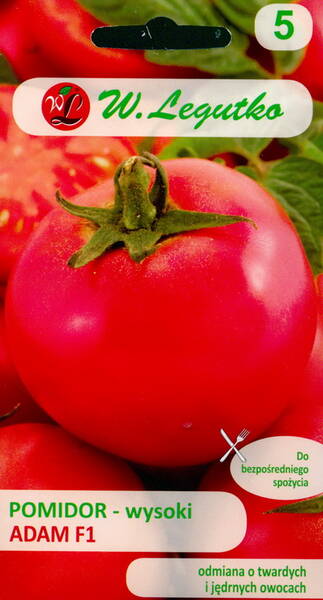Ex Tax: 1.65€
Indeterminate. Fruits are medium in size, slightly flattened, red, firm, tasty flesh.
The fruits have good processing resistance, retain their characteristic colour and shape.
* WHY SEEDLING DOESN'T GROW?
If the seedlings stopped growing and acquired a yellowish color, then something is wrong with the soil.
Take a closer look, maybe the surface of the earth is covered with a yellowish coating of salts, often a bloom of greenish moss appears ...
If the plant is taken out of the ground and the roots are examined, it turns out that they are very poorly developed. In the future, they completely die off, and the plant dies ...
The reason is that the pH of the soil is too high, that is, its alkalization.
But young plants will not develop in acidic soil either.
Tomato seedlings acquire a reddish-blue color under such conditions, the roots are also very poorly developed. It happens that the cotyledonous leaves unfolded, but at this stage the growth stopped.
In addition, excessively acidic soil (even disinfected) leads to bacterial diseases of seedlings with "black leg" (and peat soils usually have an acid reaction, garden soils often also have an acid reaction, do not forget that sawdust also acidifies the soil).
ADVICE.
To reduce acidity, lime or dolomite flour is added to the soil:
for seedlings of tomatoes, peppers and eggplants - 15-17 g per 1 kg of soil;
for seedlings of cucumbers, zucchini and other pumpkin crops - 25-30 g.
When applying lime, it is recommended to supplement it with fertilizers containing magnesium - this will improve the quality of seedlings.
When the soil is alkalized, apple cider vinegar or citric acid is added to the water - this will help the plant to absorb nutrients.















